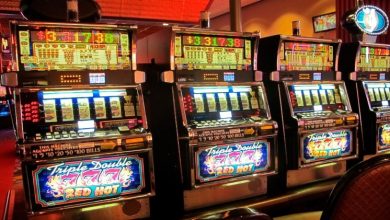Gambling Addiction Slot Gacor: Recognizing the Signs and Seeking Help

Gambling addiction, also known as compulsive gambling or slot gacor gambling disorder, is a serious condition that can have profound effects on an individual’s life. It’s characterized by an uncontrollable urge to gamble despite negative consequences. Understanding the signs and symptoms of gambling addiction is crucial for early intervention and effective treatment.
What is Gambling Addiction?
Gambling addiction is a behavioral disorder where individuals cannot control their urge to gamble, even when it leads to severe personal or financial consequences. This addiction can manifest in various forms, including casino games, sports betting, online gambling, and even scratch cards or lottery tickets.
Signs of Gambling Addiction
Recognizing the signs of gambling addiction is crucial for early intervention and support:
Preoccupation with Gambling
Constantly thinking about past gambling experiences or planning the next gambling venture.
Increasing Financial Problems
Continuously borrowing money, selling possessions, or resorting to financial schemes to support gambling habits.
Emotional Instability
Mood swings, irritability, or anxiety when not gambling or when trying to stop.
Loss of Control
Inability to stop gambling despite repeated attempts to cut back or quit.
Neglecting Responsibilities: Prioritizing gambling over work, family, or social obligations.
Chasing Losses
Trying to win back lost money by gambling more, leading to deeper financial and emotional losses.
Consequences of Gambling Addiction
The consequences of gambling addiction extend beyond financial hardship and include:
Relationship Issues
Strained relationships with family and friends due to lies, deceit, or neglect.
Legal Problems
Involvement in illegal activities to fund gambling or to pay off debts.
Psychological Impact
Depression, anxiety, and suicidal thoughts are common among individuals struggling with gambling addiction.
Physical Health
Stress-related health issues such as insomnia, ulcers, or headaches may arise.
Effects of Gambling Addiction
The consequences of gambling addiction can be devastating and extend beyond financial hardship to impact mental and physical health, relationships, and overall well-being.
Financial Impact
Gambling addiction often leads to financial ruin, including mounting debts, bankruptcy, loss of savings, and even foreclosure of homes.
Mental and Emotional Health
The stress of gambling addiction can contribute to anxiety, depression, and suicidal thoughts. The constant cycle of highs and lows from gambling can exacerbate existing mental health conditions.
Relationship Strain
Family and interpersonal relationships suffer due to lies, betrayal, and neglect associated with gambling addiction. Trust is often broken, leading to resentment and emotional distance.
Physical Health
The stress of financial problems and emotional turmoil can manifest in physical health issues such as insomnia, headaches, digestive problems, and substance abuse.
Seeking Help for Gambling Addiction
Recovery from gambling addiction is possible with the right support and treatment. It involves addressing underlying issues and learning healthier coping mechanisms.
Recognizing Triggers
Identify triggers that lead to gambling urges, such as stress or boredom, and develop strategies to manage these triggers.
Financial Management
Seek assistance with managing finances, including setting up barriers to prevent access to money for gambling.
Support Networks
Engage with support groups such as Gamblers Anonymous, where individuals can share experiences and receive encouragement from others in similar situations.
Therapy
Cognitive-behavioral therapy (CBT) is highly effective in treating gambling addiction by helping individuals change unhealthy gambling behaviors and thoughts.
Medication
In some cases, medications used to treat substance abuse or mental health disorders may be prescribed to help manage symptoms associated with gambling addiction.
Residential Treatment Programs
For severe cases, residential treatment programs offer intensive therapy and support in a structured environment.
Support for Family and Loved Ones
It’s important for family members and loved ones to seek support for themselves, as gambling addiction affects everyone in the addict’s life. Family therapy and support groups can provide guidance on coping strategies and rebuilding trust.
Prevention and Education
Educating the public about the risks of gambling addiction and promoting slot responsible gambling practices are key to prevention.
Public Awareness Campaigns
Raise awareness through educational campaigns that highlight the signs of gambling addiction and available resources for help.
Responsible Gambling Practices
Encourage responsible gambling practices, such as setting limits on time and money spent gambling, and avoiding gambling when feeling stressed or depressed.
Conclusion
Gambling addiction is a complex issue with far-reaching consequences, but recovery is achievable with the right support and treatment. By recognizing the signs, seeking help early, and promoting awareness and prevention, we can work towards reducing the impact of gambling addiction on individuals, families, and communities.
In conclusion, addressing gambling addiction requires a multifaceted approach that combines personal responsibility, community support, and professional intervention. Through education, awareness, and compassionate support, we can help individuals affected by gambling addiction reclaim their lives and build a healthier future.




